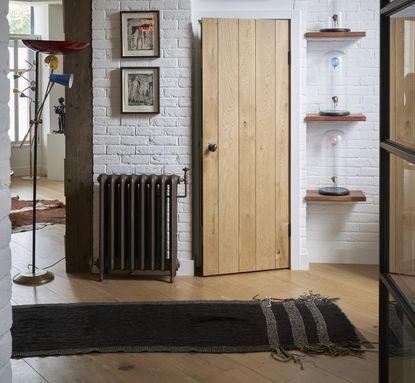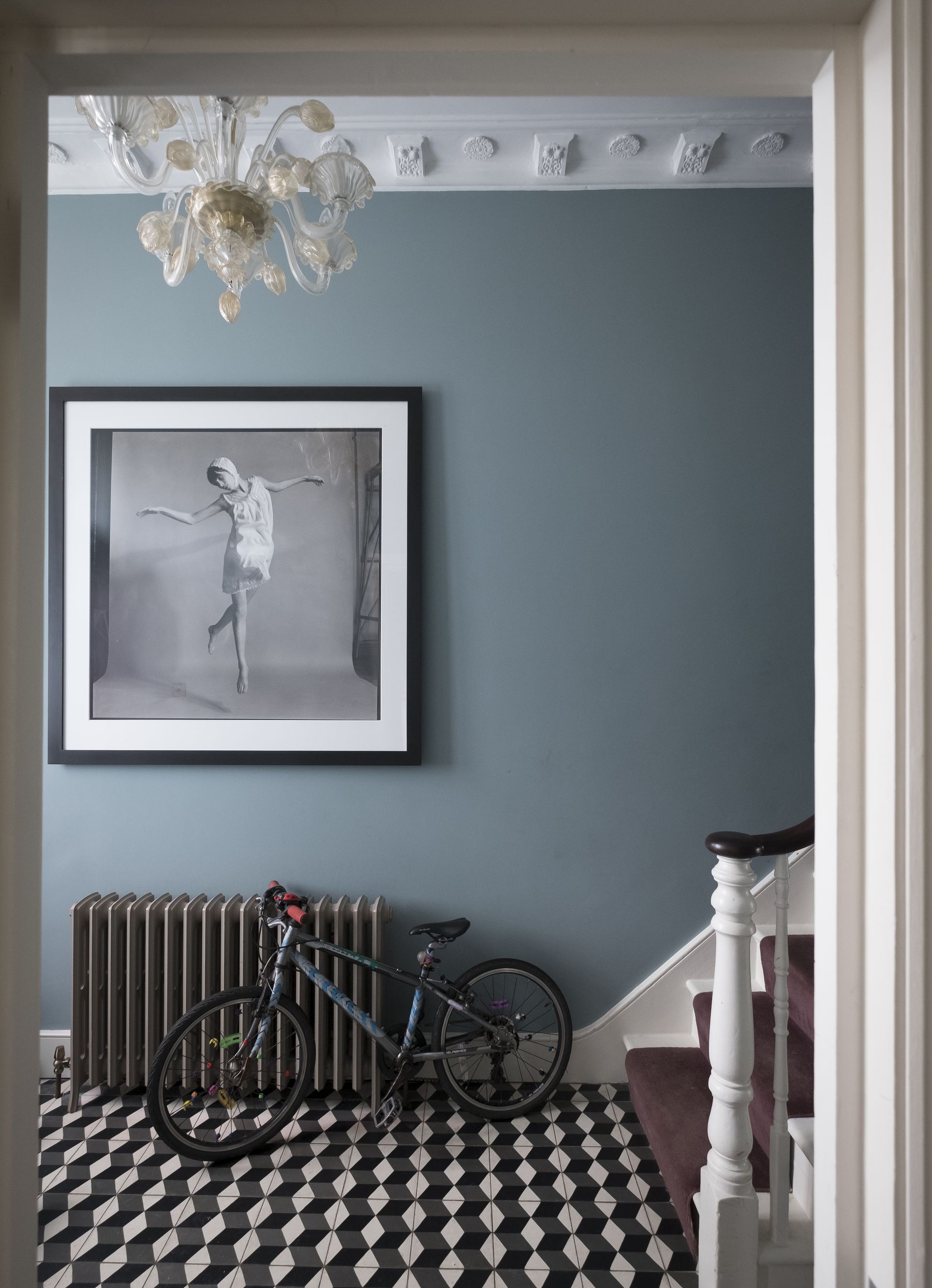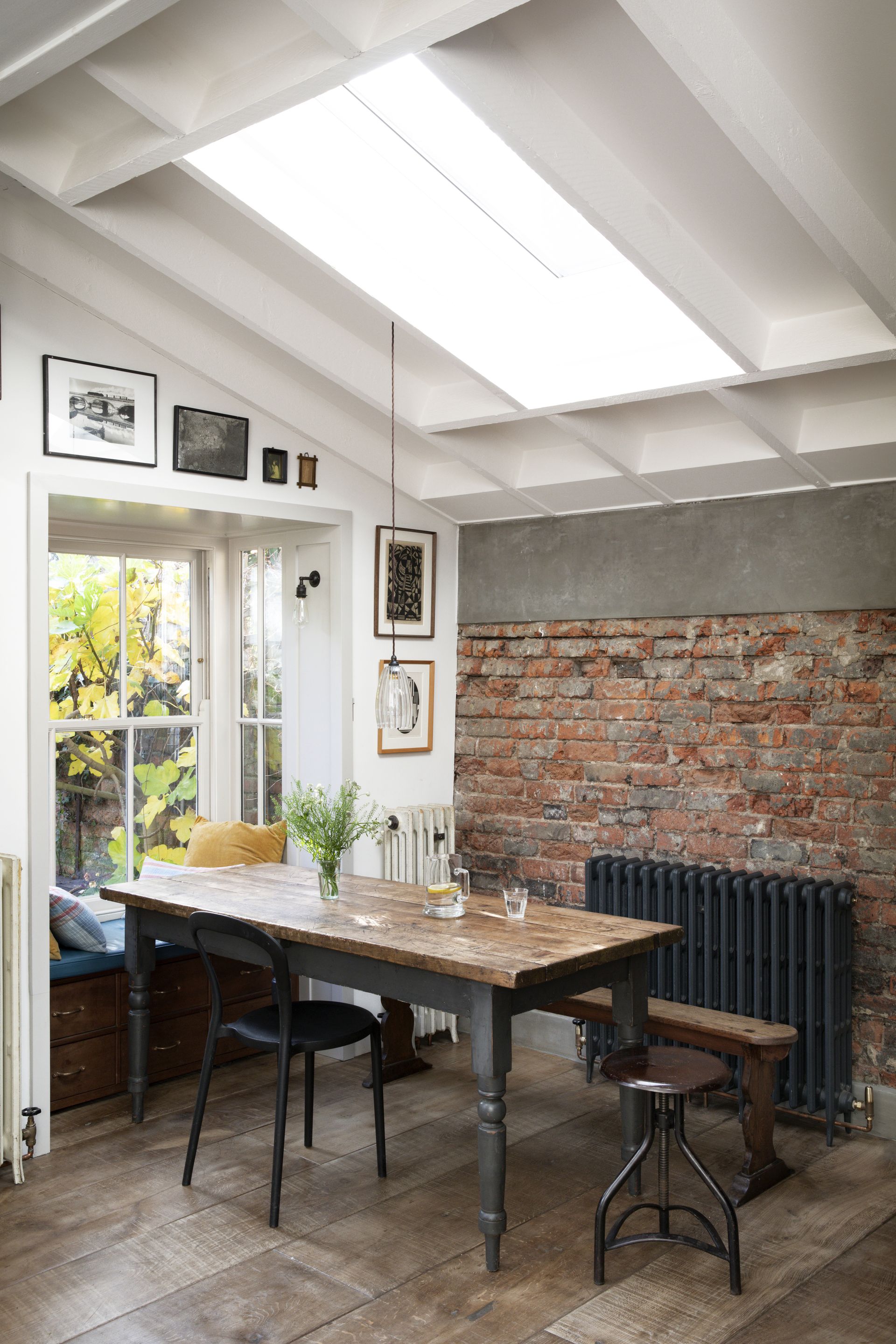These are the 5 changes you should make to your radiators this fall to help cut energy costs
As we all look to save money on our bills this winter, follow these simple heating hacks for more energy efficient radiators


As the colder weather sets in, we're all looking for easy ways we can reduce energy bills this winter. While your first thought might be to turn down the thermostat, there are some other simple changes you can make to your radiators this fall to help save money.
We all know it's better for our wallets (and the planet) to turn our heating down a notch when we can, but there are also a few inexpensive changes you can make to your radiators so they'll be more energy efficient in the long run. What's more, most of them won't require you to hire a professional either.
'With soaring energy bills it's no surprise that people are tackling energy and cost-saving measures instead,' explains Greg Richardson from Toolstation. 'Investing time and money in these measures now means that many will be better prepared to weather what promises to be a challenging fall and winter.'
If you're hoping to save on your gas bill this winter (and let's face it, who isn't?) these experts share their advice on how to make your radiators more energy efficient. And you'll be pleased to hear, with these heating hacks there's no need to sit shivering in your living room under piles of throws this winter.

Lilith is an expert at following news and trends across the world of interiors. She's committed to helping readers make the best choices in their homes through writing practical tips and guides. For this article she spoke with heating experts to learn the best ways to cut costs on your energy bills.
1. Have your heating system serviced
One surefire way to help reduce heating costs is to have your heating system serviced by a professional. Depending on the type of heating system you have, your gas provider is likely to come and service your boiler annually, but this isn't the only appliance involved in heating your home. It's important to consider your home's wider heating system, including your pipes and heaters themselves.
Your radiators can become a serious problem if they're not serviced regularly. 'Cold spots in radiators could be an indicator of a build-up of sludge, which affects heating efficiency and will cost you money in the long run by using more fuel than necessary,' explains Simon Morris, marketing manager at The Radiator Company.
A heating engineer can easily flush your radiators to remove any build up. The process simply involves flushing fresh water through the appliance to clear any dirt from inside it and can be carried out in a matter of minutes.

2. Check the flow temperature of your boiler
Not all of us understand the ins and outs of our boiler, especially as they're becoming increasingly modernized. However, if there's one thing you should get to grips with in your modern home, it's your boiler's flow rate.
The flow rate is measured by the speed at which your boiler can heat the water supplied to your various hot water outlets. In layman's terms, the hotter the flow temperature, the more expensive your bill will be. (Note that this is only applicable to combi boilers.)
This isn't the same as turning down your thermostat, and it shouldn't compromise the heat of your home. What it will do, however, is save you money. 'The temperature doesn’t usually need to be more than 130 degrees Fahrenheit,' says Greg from Toolstation. 'For every 10 degrees you reduce your flow rate it can save 6-8% on your bills.'
3. Bleed your radiators
Most of us know about this nifty trick, but for those who don't, bleeding your radiators really can make a huge difference to the energy efficiency of your home since air pockets can become trapped inside your radiators over time, preventing the flow of water inside them.
A clear indicator that your radiators need bleeding is that certain areas feel cold to the touch, especially the very top. If mysterious noises are coming from your pipes, particularly once you've turned your heating on, this could be a sign of trapped air.
To bleed your radiators yourself, you'll need to use a radiator key. (In some cases, a flat head screwdriver could also work.) First turn off your heating and ensure your radiators are cold. Next, protect your carpet or flooring with a cloth and place a bowl or jug below your air vent to catch any overspill, then slowly open the air vent at the top of your radiator. You should feel and hear the trapped air escaping.
Once the airflow stops, close the vent and turn your radiators back on. You should notice an instant difference in the amount of heat your radiators emit.

4. Install thermostatic radiator valves
Even with the best smart thermostat, many of us often waste energy heating rooms we're not using. If your radiators aren't already installed with thermostatic radiator valves (TRVs), it's worth making the investment and installing this clever little gadget.
TRVs are valves that regulate the temperature of your radiator meaning you can control the heating within an individual room without adjusting the thermostat. Many heaters will already be installed with TRVs, but you can purchase one for as little as $15 (or even less, like this one from Amazon).
As Greg explains: 'With energy costs rising, quick, easy and low-cost additions to your home that can save you money are really helpful. Thermostatic Radiator Valves are just that, and allow households to manually adjust the radiators in each room of their home – reducing the amount of energy each room needs, and so bringing down your overall energy consumption.'
If you use certain rooms far more frequently than others, this small piece of kit can help your lower the temperature in rooms you don't use as often. 'If you’re not using a room, you can manually switch the radiator off and save yourself some money,' Greg adds.
5. Consider switching to aluminium radiators
Most radiators are traditionally made out of steel and, although it's a fantastic heat conductor, modern radiators have now been developed from even more efficient metal conductors.
If you're in a position to install new radiators throughout your home, it's worth considering aluminum heaters when it comes to ways to make your house feel warmer. 'They're the best option for energy efficiency as they heat up in just over half the time of steel and use 50% less water,' explains Simon. Aluminum is also a much lighter metal than steel, making it far easier to install and remove your radiators if necessary.
Be The First To Know
The Livingetc newsletter is your shortcut to the now and the next in home design. Subscribe today to receive a stunning free 200-page book of the best homes from around the world.

Lilith Hudson is the News Editor at Livingetc, and an expert at decoding trends and reporting on them as they happen. Writing news, features, and explainers for our digital platform, she's the go-to person for all the latest micro-trends, interior hacks, and color inspiration you need in your home. Lilith discovered a love for lifestyle journalism during her BA in English and Philosophy at the University of Nottingham where she spent more time writing for her student magazine than she did studying. After graduating, she decided to take things a step further and now holds an MA in Magazine Journalism from City, University of London, with previous experience at the Saturday Times Magazine, Evening Standard, DJ Mag, and The Simple Things Magazine. At weekends you'll find her renovating a tiny one-up, one-down annex next to her Dad's holiday cottage in the Derbyshire dales where she applies all the latest design ideas she's picked up through the week.
-
 These 12 Best Table Lamps for Your Desk — Perfect Glows for a Creative Home Office
These 12 Best Table Lamps for Your Desk — Perfect Glows for a Creative Home OfficeThe best table lamps for your desk is have a soft, targeted glow. Elevate your WFH set-up with these stylish picks endorsed by Style Editor Brigid Kennedy
By Brigid Kennedy Published
-
 The Nespresso VertuoPlus is 30% Off for President's Day, and it's Kim Kardashian's Coffee Maker of Choice
The Nespresso VertuoPlus is 30% Off for President's Day, and it's Kim Kardashian's Coffee Maker of ChoiceThis sleek and stylish coffee maker was spotted in Kim's home bar, and you can currently save $60 if you buy yours from Amazon
By Lilith Hudson Published

